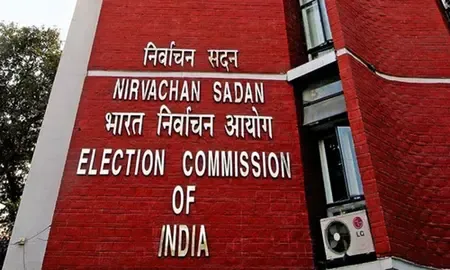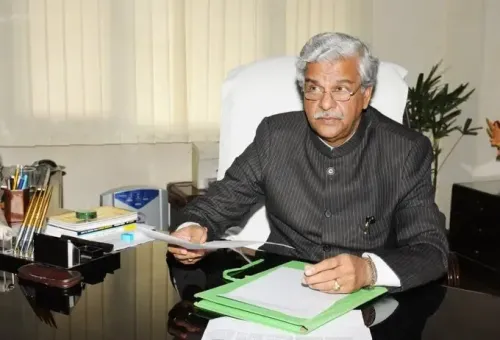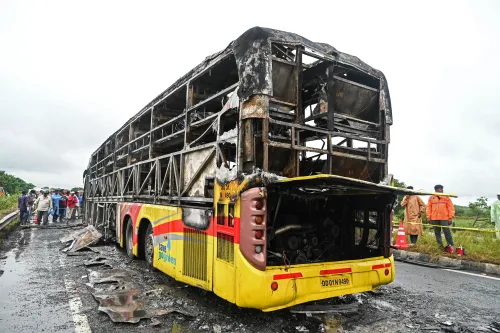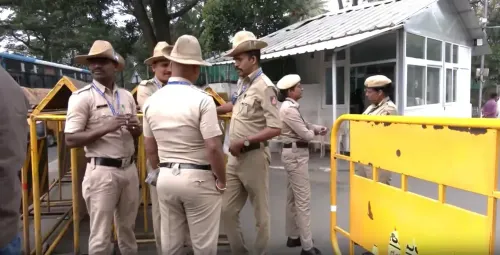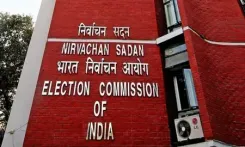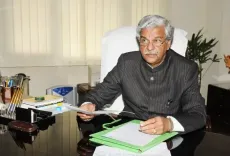Is the Collapse of the Maoist Movement Imminent Before 2026?
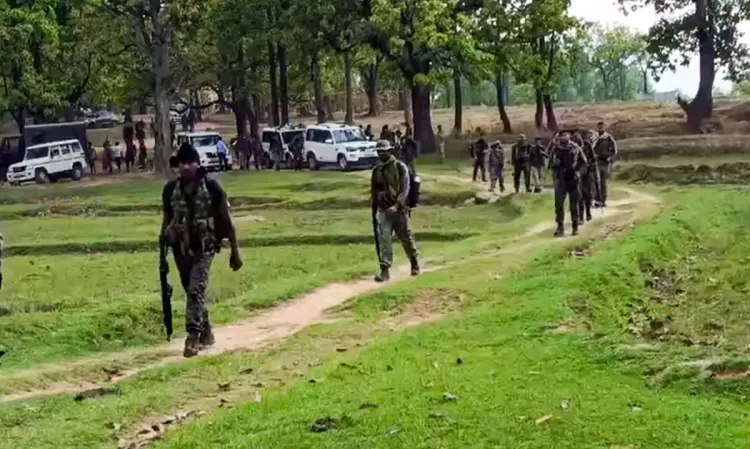
Synopsis
Key Takeaways
- Deadline: March 2026 set by Amit Shah for Maoist eradication.
- Leadership Shift: Top Maoist leader's letter hints at movement's decline.
- Government Stance: No negotiations, emphasizing a zero-tolerance policy.
- Strategic Approach: Focus on military action and development initiatives.
- Local Support: Decreased local support for Maoists due to government development efforts.
New Delhi, Oct 13 (NationPress) Union Home Minister Amit Shah had established a target of March 2026 for the dismantling of the Maoist insurgency in India. As the clock ticks down to this deadline, security personnel express optimism that this threat may be eradicated even sooner.
A significant indicator of the movement’s decline is reflected in a letter by Mallojula Venugopal Rao, known as Sonu, a prominent Maoist leader aged 70. In this letter, he openly requested an end to the armed conflict to preserve the CPI-Maoist.
While it remains uncertain whether he has garnered unanimous support from his ranks regarding this proposal, one thing is evident: the movement that commenced in 1967 is approaching its conclusion.
Operating from his concealed location, Rao extended apologies to all affiliated with the movement, emphasizing the necessity for adaptation to changing circumstances.
The Narendra Modi administration, however, has maintained its position that negotiations are off the table.
Union Home Minister Shah, overseeing counter-insurgency operations, asserts that the sole options available are surrender or facing death in an encounter.
An official involved in strategizing against the Maoists remarked that when Rao's letter first emerged, discussions ensued about potential next steps. Nevertheless, the government was resolute that such tactics had been previously employed, and this time, security forces would not fall for the deception.
Historically, Maoists have sought dialogue with the government following setbacks, which allowed them time to regroup, often leading to governmental naivety.
Security analysts contend that this time, the Maoists have misjudged the landscape. When the Narendra Modi government ascended in 2014, many, including the Maoists, anticipated its swift demise. They only began taking the government seriously after its re-election in 2019. Since then, the conflict against the Maoists has intensified, with the government deploying both personnel and firepower, along with significant investments in development. This shift altered local perspectives, leading to decreased support for the Maoists.
This marked a substantial blow to the Maoist framework, which is now visibly crumbling. Officials predict that Bastar, the last bastion of Maoist strength, will soon capitulate.
"We suspect that Rao is hiding in Bastar, and his letter unequivocally indicates that the movement is nearing its end," noted the official.
Another official highlighted that the Maoists have experienced numerous governments over time. Traditionally, a reciprocal approach has been taken towards addressing this issue. However, this time, a markedly different strategy has been adopted, with the government refusing to yield.
Upon assuming power, the Modi administration made it clear that a zero-tolerance stance towards terrorism would prevail, applying equally to the Maoist threat, which analysts have deemed more severe than terrorism emanating from Pakistan. Consequently, a strategy was devised to conclude this menace.
An Intelligence Bureau official stated that the Maoists have exhausted their resources. They cling to their cause out of pride. Rao’s letter represents a final, desperate bid by the Maoists to salvage their movement. The government, however, remains resolute in its refusal to engage in negotiations that would allow the movement to persist.
The Home Minister has unequivocally stated his desire for the cessation of the Maoist insurgency, attainable solely through force or voluntary surrender. The prospect of negotiations is non-existent, and this approach is believed by security forces to facilitate the eradication of the movement well ahead of the March 2026 deadline.

